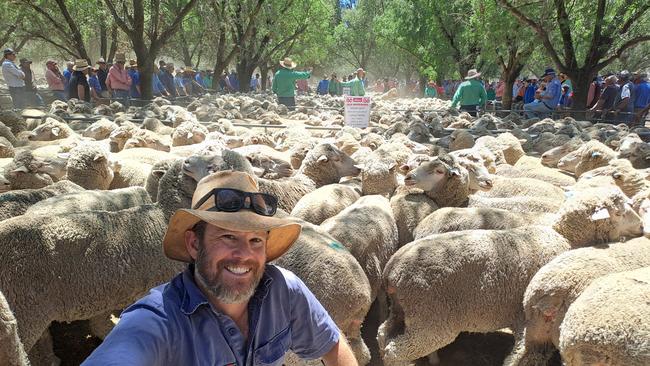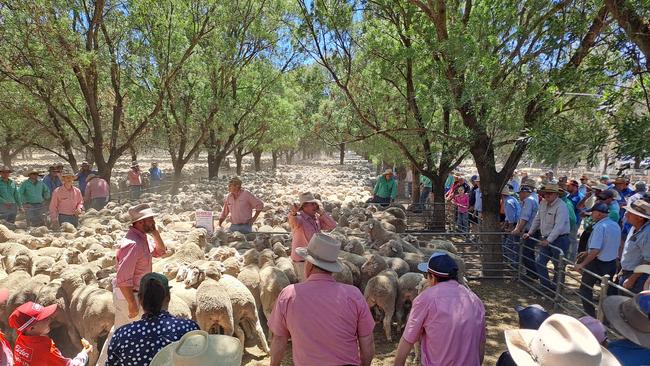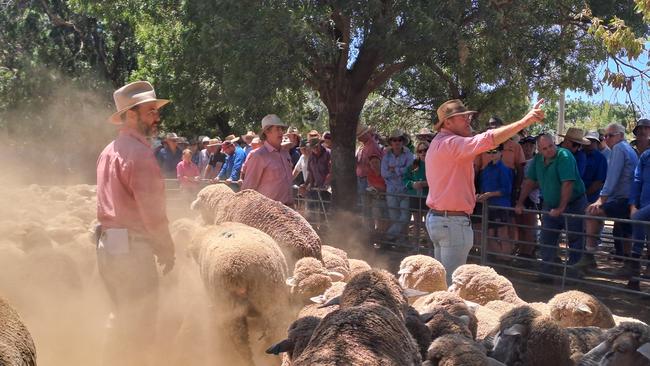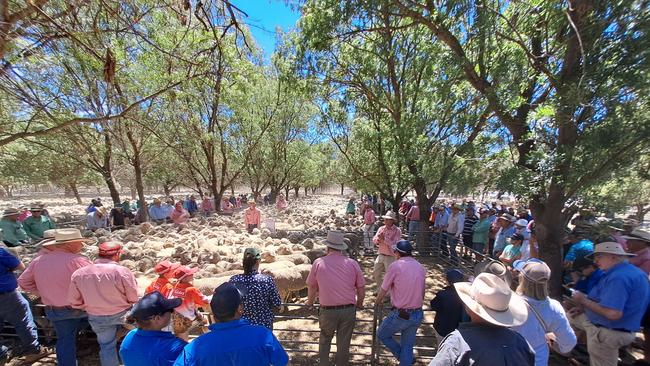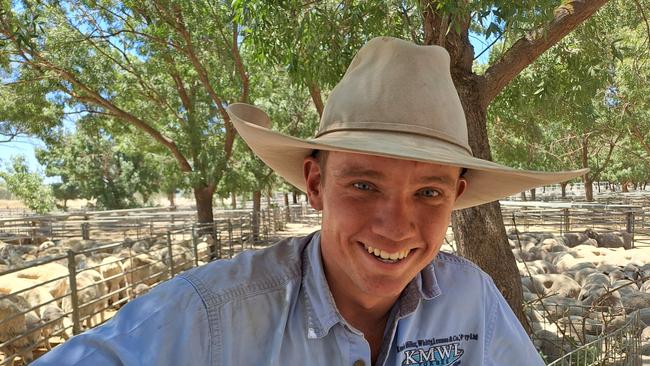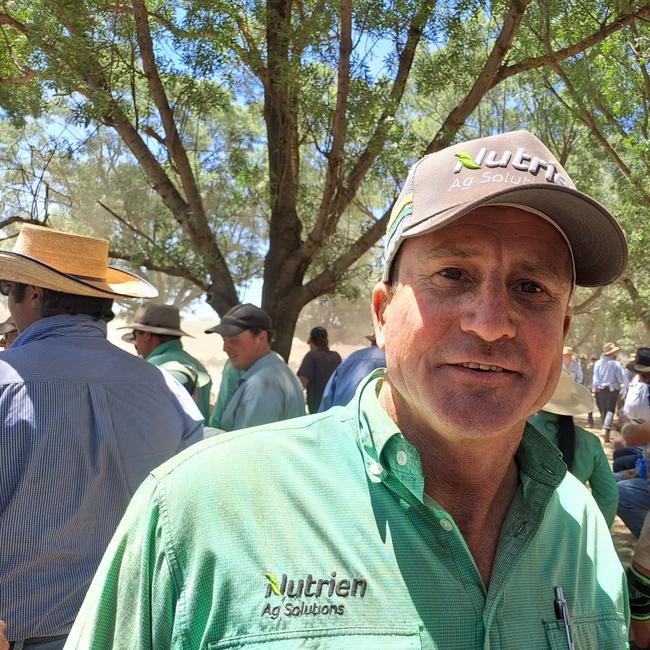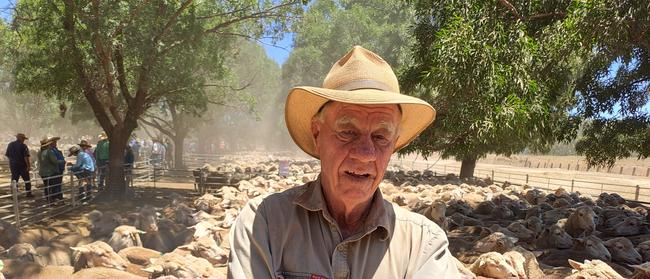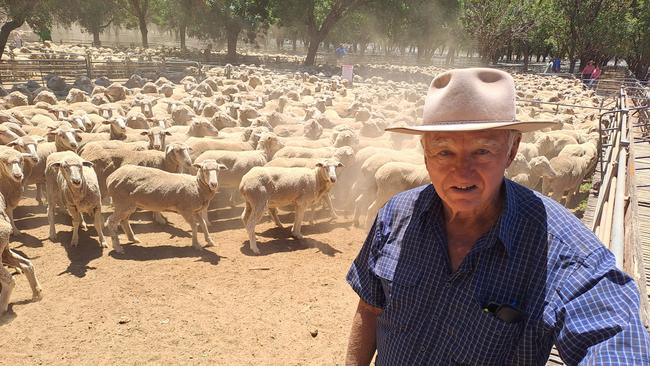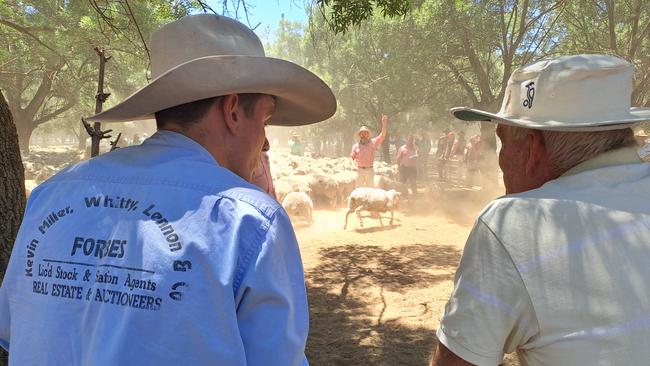Buyers market at Deniliquin sheep sale
Restockers made the most of reasonable rates at Deniliquin sheep sale. See how the yarding sold.
Just reasonable to below expectations was the verdict on Merino ewe prices at last week’s big store sheep sale at Deniliquin as the best young scanned-in-lamb ewes, with six months of wool, sold to $242.
It was a brighter outcome for first-cross ewes which sold to a peak of $298 for a lone pen of SIL 1.5-year-olds.
Crossbred store lambs were well supported, selling up to $155 to often exceed recent prime market values on the bigger lines.
But the market generally struggled to build momentum on unjoined young Merino ewes, the bulk selling from $120 to $160 which allowed meat processors to step in and purchase some sheep.
Local breeder Graeme Allitt dispersed his Singorimbah Merino flock, which had been based on Goolgumbla blood for the past 20 years.
He described prices as “$15 to $20 per head under what we thought’’, putting the result in favour of buyers.
The 2023-drop Singorimbah ewes despastured to White Suffolk rams and December shorn sold to a top of $152, while same age ewes which had not run with rams made $107.
“I think there has been a lot of good value sheep here for buyers, but that is farming and by having reasonable prices for buyers it helps keep things going around,’’ was the sage remark from the 78-year-old who has seen many fluctuations in his lifetime of farming.
Buyers didn’t use the word ‘cheap’ to The Weekly Times, but agreed ewes looked buyable, especially for those who had been selling prime lambs for good money of 800c to 900c/kg in recent weeks.
It was NSW agents who helped support the sale, which would arguably have been tougher due to restricted buyer demand from the south linked to the dry season and water problems in many areas.
A volume buyer was livestock agent Jack Whitty, KMWL at Forbes in NSW, who purchased more than 6000 head from the sale, ranging from SIL ewes to store lambs.
He said he had found a “lot of value for money’’ across the sale, particularly as clients in the Forbes area had received up to 75mm of rain through storms in January.
“We’ve been able to purchase good quality young Merino ewes that will be in production for the next four or five years for well under $200 per head,’’ he said.
“I think anyone prepared to step into these young sheep, even though there is some uncertainty around how the season and lamb and mutton prices will perform, will be rewarded in the long run.’’
The take-home messages from the sale were that crossbred ewes were more eagerly sought than Merinos; buyers wanted SIL ewes and were prepared to pay significant premiums compared to just depastured sheep; and buyers were still keen for shorter term trading options such as store lambs.
Ultimately agents said cash-flow and sheep which offered a quicker turnaround were better
supported across the sale.
Some agents also suggested the tight financial situation across the farming sector meant smaller lots of sheep had also sold better than the bigger lines of 400 plus, although it could be argued feed scarcity could have also influenced this outcome.
Overall, the lead runs of SIL young Merino ewes sold from $170 to a top of $242, the pens priced over $200 were carrying more than 5-months worth of wool.
After this there was a lot of Merino ewes in the $120 to $160 price bracket, and this included the general run of unjoined 2023 drops and the better quality aged ewes which were joined.
Little Merino ewe lambs struggled at $55 to $108, with the better grown and framed types to
$136/head.
The crossbred ewes sold to $298 for a pen of 112 ewes which were April/May 2023 drop and SIL to Poll Dorset rams for an early lambing, having been joined in October.
The lead pen of 2024 drop crossbred ewe lambs, joinable size averaging over 56kg liveweight, sold for $252.
Underneath this was a run of young first-cross and White Suffolk Merino-cross lambs that would need further growing out before being joined to rams at $102 to $170.
More Coverage
